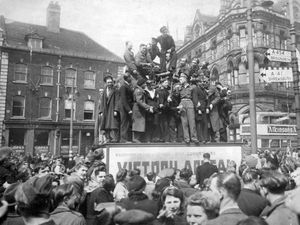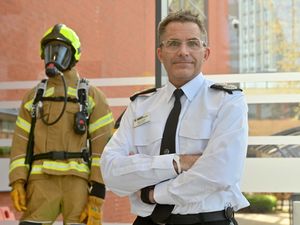Battle to remember historic war heroes
Outnumbered and overrun by Zulu warriors it appeared Sergeant Anthony Clarke Booth and his men faced certain death.
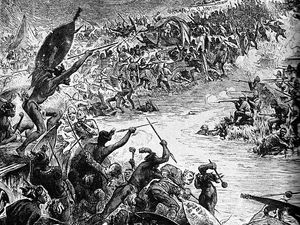
But his heroic actions in helping hold off hundreds of the enemy for fellow soldiers to escape earned him a Victoria Cross and his name is still held up today as one of the bravest of the brave.
On March 12, 1879, on the Intombe River, Transvaal, a large group of Zulus launched an attack on the British position.
Booth rallied some men on the south bank of the river and covered the retreat of 50 soldiers and others for a distance of three miles.
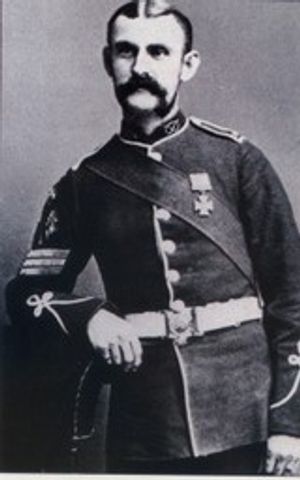
Booth’s coolness under pressure ensured that all the men were accounted for, and saved their lives.
Sgt Booth now rests in a cemetery at St Michael’s Church in Brierley Hill – but his grave today stands in ruins.
For a man who was awarded the top military award by his country, it is difficult to understand how the grave marking the place where he lies has arrived at such a state.
Vandalism is the suspected cause of the fallen headstone but the weathered grave has long been in need of repair.
The upkeep of war graves is ultimately the responsibility of families, but many have now moved away or died.
But a hardy group of volunteers have taken it upon themselves to preserve Victoria Cross recipient’s graves.
They put in a tremendous effort but have a difficult task to keep on top of the 800 graves around the UK.
They don’t get any funding from the Government and rely solely on donations from the public.
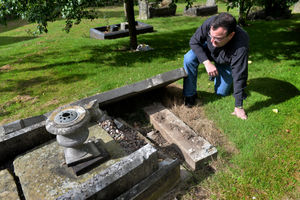
Gary Stapleton set up the trust six years ago after he was appalled at the condition of a VC grave in his home town Doncaster.
A team of only three people work on graves and are forced to prioritise those deemed to be most in need of repair.
They were out in Brierley Hill yesterday to tend to Sgt Booth’s grave.
Mr Stapleton believes it should be the responsibility of the public as a whole to remember those who fought for this country.
He said: “Like the vast majority of people I thought this was the responsibility of the Commonwealth War Graves but I was educated very quickly that anybody who was not killed in action in the First and Second World Wars is not the responsibility of the Commonwealth War Graves.
"I was gobsmacked to find out there are over 800 in the UK being forgotten about.
“It’s very difficult.
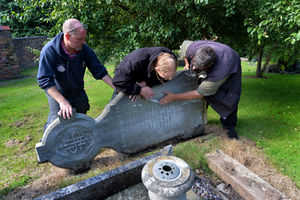
“We are constantly assessing which ones are at risk and desperately need doing.
“People are reluctant to give to the dead. What is the difference between some lout pushing this over and graves falling to pieces as they are being ignored ?
“We do this because nobody else was interested.”
Anthony Booth was born in Nottingham in April 1846. He worked as a tailor before entering the 80th Regiment of Foot, later the South Staffordshire Regiment, in October 1864. As Britain headed for war with the Zulus, Sgt Booth was sent to South Africa.
He is remembered for his remarkable courage when his regiment came under attack on the banks of the Intombe River in March 1879. He rallied his men who fired back at the enemy, holding off the attackers long enough for some to escape.
His actions earned him a promotion to Colour Sergeant and the announcement that he had been awarded the Victoria Cross was made in the London Gazette on February 23, 1880. He was awarded his medal by Queen Victoria at Windsor Castle on June 26.
Sgt Booth later transferred to the 1st Volunteer Battalion, South Staffordshire Regiment at Brierley Hill. He discharged from the army in April 1898 and died the following year of rheumatic fever and jaundice at his home in William Street, Brierley Hill, aged 53.
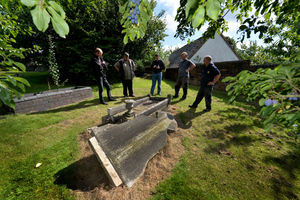
Some of his grandchildren followed in his footsteps by serving in the First World War, two of whom were killed in action.
His medals, including his VC and Anglo-Zulu War campaign medal, are on display at the Staffordshire Regimental Museum at Whittington Barracks, Lichfield.
Malcolm Davis, chairman of the Royal British Legion’s Dudley branch, believes there is a danger war heroes will be forgotten over the coming decades.
He said: “We have a commitment to these people. There are graves that until recently a couple of our members visited and serviced them.
"But they are ill now or too old and this is what happens.
“The sad thing is as time goes on there are fewer people to do it.”

